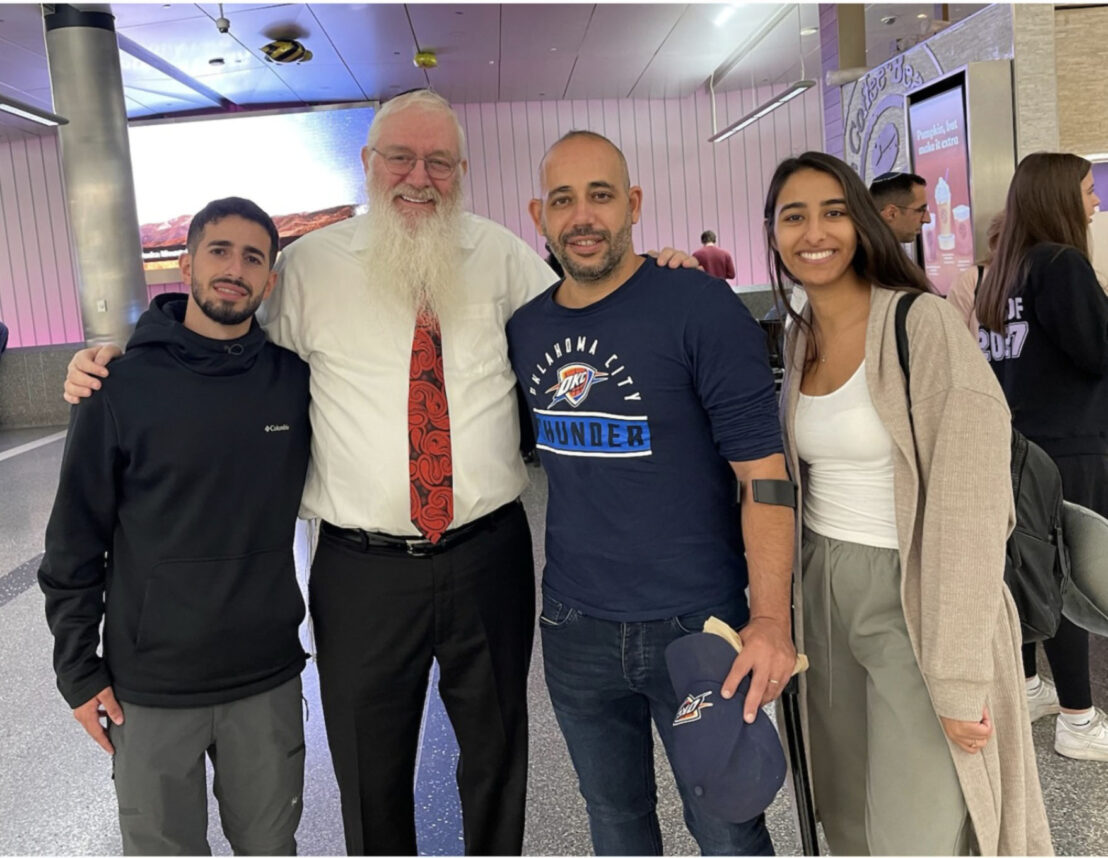I made a bet with myself that I could resist using the Star Wars craze as an analogy to write something about the state of the Jewish world. The moment I lost that bet was when I discovered, in Terror in the Name of God, Mark Juergensmeyer’s landmark book about religious extremism, the concept of “cosmic war.” Then I realized that, just as Darth Vader and Han Solo are involved in a cosmic struggle, so too are we. Sadly.
Juergensmeyer and others use the term “cosmic war” to characterize conflicts in which one or both sides are extremely polarized, perceiving their fight to have larger-than-life proportions.
In a cosmic war, a disagreement over a specific issue—say, a government policy, or a territory—becomes much larger and much simpler. It’s a supremely significant struggle between pure good and pure evil, a fight to carry out the divine plan or enact the group’s ultimate destiny. Losing such a war is unthinkable, compromise with the “primary enemy” is impossible, and even those in the in-group who consider compromise, or question the cosmic nature of the struggle, come to be seen as the enemy themselves (“the secondary enemy”). In a fight between martyrs and demons, moderates can’t be tolerated, and the primary and secondary enemy become so conflated that they are interchangeable.
Cosmic warriors feel ennobled, exalted. They aren’t just thugs or bullies; they are saving the world. Simultaneously, they invariably see themselves as victims. Any violent act they commit is always self-defense, and in any case the urgency of the fight supersedes all laws and scruples. The dramatic denouement is always near, and the actions of a cosmic warrior can tip the balance to ultimate victory. That’s how jihadis of all religions go about murdering noncombatants without the slightest pang of conscience.
These characteristics are demonstrated clearly by Islamic radicals, who fight for world domination and completely blur the distinction between primary and secondary enemies. The FIS in Algeria mainly killed moderate Muslims and neutral villagers for not joining their jihad. All Islamic terrorists see themselves as victims and “martyrs,” and compromise isn’t possible or desirable. Believing their cosmic war to be simple and binary, Islamic radicals are untroubled by inconvenient facts; radical Muslim clerics can claim — against all evidence — that there was never a Jewish Temple on the Temple Mount.
The mentality of cosmic war, while most prominently expressed in Islamic fundamentalism, is not the exclusive patrimony of Islam. All our communities, to different degrees, are infected by the same virus. In the Jewish world, the notion that we are at cosmic war is gaining ground, and creating a culture of unprecedented polarization and violence.
When Yigal Amir killed Yitzhak Rabin, he was conflating the primary enemy with the secondary enemy who negotiates with him. Not all manifestations of cosmic war are immediately violent like Amir’s act of murder, but they do contribute to creating the ferment of violence. The latest of many examples in Israel include the vicious and verbally violent attacks on Israeli President Rubi Rivlin for daring to attend a conference of “left wingers,” and a video of wedding revelers singing as they stab the photo of a Palestinian infant. These unthinkable expressions of violent intention toward a president with whom they disagree, or a child far too young to deserve anyone’s enmity, can only be explained by the paradigm of cosmic war. A similar pattern emerged in the American Jewish community during the debate around the Iran deal. Both sides saw their opponents not as holding valid but dissenting opinions, but rather as cosmic foes.
We see the same ideology gaining ground in the larger American political scene. Policy debates and discussion of ideas are conspicuously absent from a political discourse that focuses increasingly on demonization. As with the Temple Mount, facts become irrelevant; the more outlandish the claim, the more political rewards one reaps. When reading the “fact check” after a recent presidential debate, I was bewildered; only one claim was qualified as “true but misleading”— all the others stood in diverse degrees of falsehood. It doesn’t seem to matter.
Cosmic wars, religious or secular, never end well. Their fighters hope their martyrdom will bring final victory, but while they may find death, they do not achieve their utopias. They come to the end as pathetic extremists, dying for no cause except hatred and paranoia, and creating vast suffering around them.
The weakening of the moderate center is changing the face of the Jewish community, which seems now to be dominated by extreme positions on the left and right. Without a conscious effort, the wave of radicalization sweeping the world will drag us, too, into the abyss of self-destruction. Now, more than ever, we need to be advocates of rationality and moderation. True, traditional Judaism embraces the vision of a future utopia where there’s no war and suffering: It’s called “the messianic era”. We pray for that several times a day and we never cease yearning for that time. But our sages, conscious of the dangers, never perceived this aspiration as a call to jihad or cosmic war. Rather, they saw it as a beacon that would guide human self-improvement until the final goal is attained at the “end of days.” Furthermore, the Jewish promise of a messianic future enables more pluralism in this world; disagreements don’t require an absolute winner now, because —as the Talmud says—the messiah will elucidate who’s right.
We must reject the notion of cosmic wars. Our disagreements are differences of opinion that can be bridged, not monumental fights to the death. We must reclaim our heritage of “elu v’elu,” the principle that two divergent opinions can be true and Godly. We need to reframe our conflicts as specific rather than cosmic, and rescue the notion of pragmatic compromise that was so dear to the Talmudic masters. This fight for moderation is a worthy and noble one, and it is one that we can win with the force of our reason and our passion.
May that Force be with you—and may we all remember that any Force worthy of the real world is a lot more complicated than one that has only two sides of Light and Dark.
Andres Spokoiny is the Executive Director of Jewish Funders Network




















 More news and opinions than at a Shabbat dinner, right in your inbox.
More news and opinions than at a Shabbat dinner, right in your inbox.